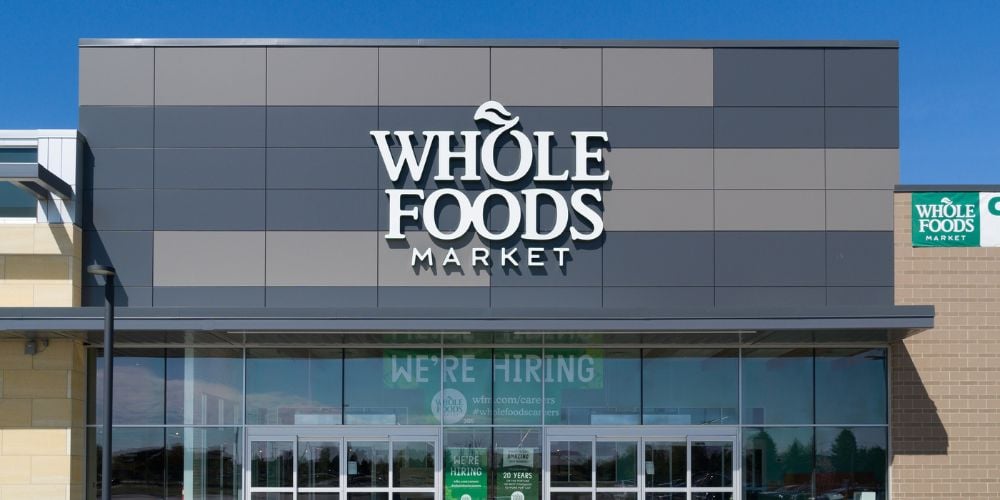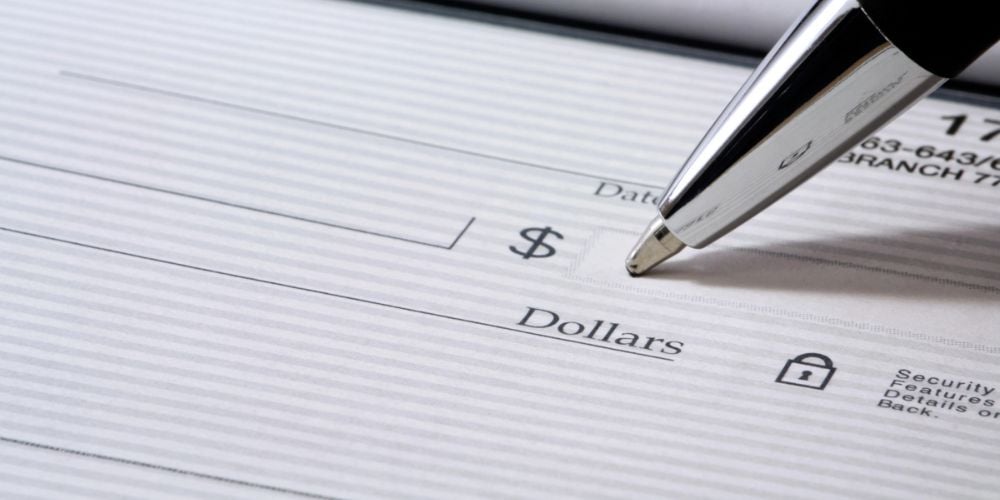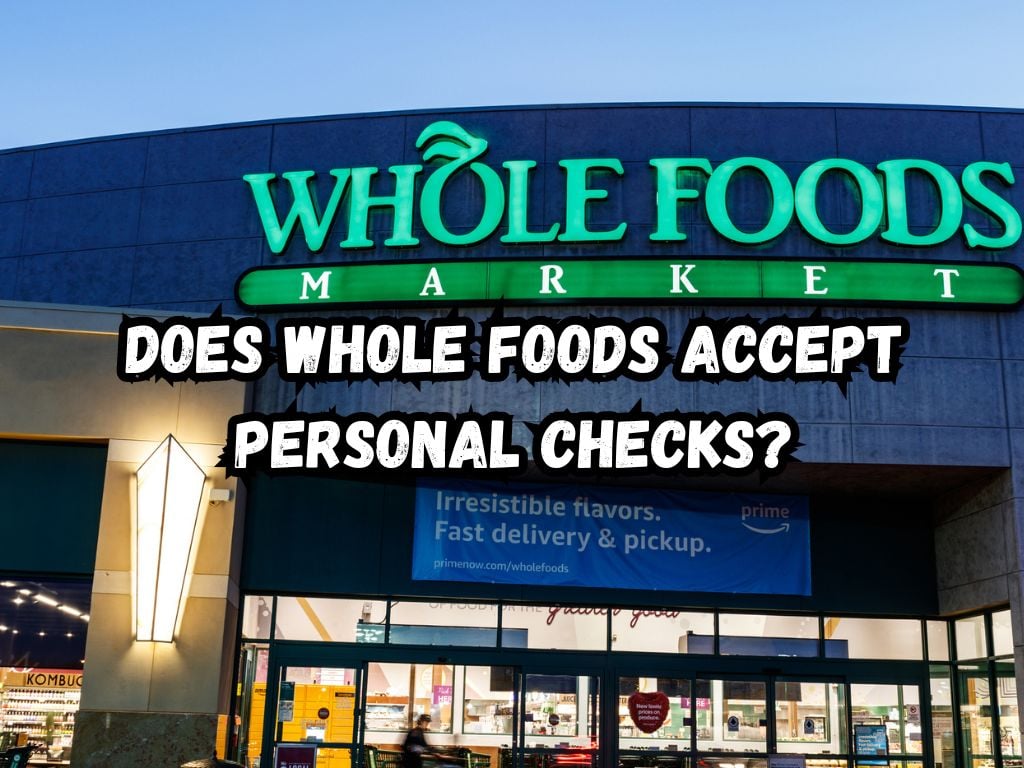When it comes to grocery shopping, the payment method we choose can greatly impact our convenience and overall experience.
Whole Foods, the popular supermarket chain known for its emphasis on natural and organic products, has always aimed to provide a seamless shopping experience for its customers.
However, many shoppers have wondered does Whole Foods accept personal checks?
In this in-depth guide, we will delve into Whole Foods’ payment policy and explore whether personal checks are accepted.
We will discuss the reasons behind Whole Foods’ decision to reject personal checks, the impact on customers, alternative payment options available, and address frequently asked questions related to Whole Foods’ payment methods.
By the end of this article, you will have a clear understanding of Whole Foods’ payment policies and the options available to you as a customer.
Does Whole Foods accept personal checks?
No, Whole Foods does not accept personal checks as a payment method. They stopped accepting checks in 2011. Other payment methods such as credit and debit cards, as well as mobile payments, are accepted at Whole Foods.

Whole Foods’ Payment Policy Overview
Accepted payment methods at Whole Foods stores may vary slightly based on location and region.
However, in general, Whole Foods accepts several common forms of payment, including cash, debit cards, credit cards, and mobile payments.
Cash
Customers can pay in cash at any Whole Foods store. Cash payment provides a simple, straightforward option for those who prefer to handle their transactions in physical currency.
It also allows for quick transactions without the need for additional verification.
Debit Cards
Whole Foods accepts all major debit cards, including Visa, Mastercard, American Express, and Discover.
Customers can simply swipe their debit card to complete their purchases. Debit cards offer a convenient and secure way to make payments directly from your bank account.
Credit Cards
Just like debit cards, Whole Foods accepts various credit cards, allowing customers to conveniently use their preferred payment method.
Major credit card networks like Visa, Mastercard, American Express, and Discover are all accepted.
Credit cards provide flexibility in managing payments and often offer rewards or cashback programs for cardholders.
Mobile Payments
With the increasing popularity of mobile payment options, Whole Foods customers can also make use of Apple Pay to complete their transactions with ease.
Simply link your credit or debit card to the Apple Pay on your device and tap it at the checkout terminal to make the payment.
Whole Foods’ Decision to Reject Personal Checks
In recent years, Whole Foods has made a strategic decision to no longer accept personal checks as a form of payment.
While personal checks were once an accepted form of payment, the decision to stop accepting them is not unique to Whole Foods. Many retailers have taken this step.
Efficiency and Speed
Accepting personal checks requires additional steps for verification and processing, such as manual entry of routing and account numbers, phone verification, and potential bank holds.
By eliminating personal checks, Whole Foods can streamline its payment process and reduce checkout times, ensuring a faster and more efficient shopping experience for all customers.
Fraud Prevention
Checks can be susceptible to fraud and are often used as a means of counterfeit payments.
Criminals have found ways to produce counterfeit checks that closely mimic legitimate ones, making it challenging for retailers to differentiate between real and fake checks.
By eliminating personal checks, Whole Foods aims to minimize fraudulent transactions and safeguard the interests of both the customers and the company.
Cost Reduction
Handling personal checks incurs additional costs for processing, including bank fees and administrative expenses.
Banks charge fees for processing checks, and these costs can add up when thousands of checks are processed daily.
By discontinuing the acceptance of personal checks, Whole Foods can allocate its resources more effectively, ultimately benefiting the overall shopping experience and offering customers more competitive prices.
Impact on Customers
While Whole Foods’ decision to no longer accept personal checks may have been made with the intention of improving customer experience, it does have an impact on customers who preferred to pay by check.
Here are some ways this policy change affects customers:
Convenience
Some customers may find it inconvenient if they relied solely on personal checks for their grocery purchases.
With personal checks no longer accepted, these customers will need to adopt an alternative payment method.
This may require them to carry cash, use a debit or credit card, or utilize mobile payment options.

Transition to Other Payment Methods
Customers who have been using personal checks may need to adapt to using cash, debit cards, credit cards, or mobile payment options.
Whole Foods offers various payment alternatives, ensuring that customers still have a wide range of options to choose from.
If customers are concerned about carrying cash, using a debit or credit card can provide a seamless transition.
Education and Awareness
Whole Foods must effectively communicate its payment policy changes to customers to ensure a smooth transition.
By providing proper signage, online notifications, and continuous reminders at checkout, Whole Foods can help customers understand the new payment options available to them.
Educating customers about the reasons behind the policy change can help alleviate any confusion or frustration they may have.
Frequently Asked Questions
Does Whole Foods accept alternative payment methods like EBT, WIC, or SNAP?
Whole Foods does accept alternative payment methods such as EBT (Electronic Benefit Transfer), WIC (Women, Infants, and Children), and SNAP (Supplemental Nutrition Assistance Program) benefits. However, availability may vary based on state and store location. Customers can inquire at their local Whole Foods store or visit their website for more information on specific eligibility criteria. Whole Foods strives to support low-income individuals and families by accepting these alternative payment options.
Can customers use credit cards at Whole Foods?
Yes, Whole Foods accepts credit cards from all major networks, including Visa, Mastercard, American Express, and Discover. Customers can opt to pay with their preferred credit card at any Whole Foods store. Credit cards offer convenience, rewards, and additional purchase protection for customers.
Is Apple Pay accepted at Whole Foods?
Yes, Whole Foods accepts Apple Pay as one of its mobile payment options. Customers can use their iPhones or Apple Watches to make contactless payments at checkout, ensuring a quick and convenient transaction process. Apple Pay offers enhanced security as it does not share your actual card details with the retailer, reducing the risk of card fraud.
Conclusion
Understanding Whole Foods’ payment policies is crucial for customers to have a seamless and convenient shopping experience.
While personal checks are no longer accepted at Whole Foods stores in certain regions, customers have an array of alternative payment options to choose from, including cash, debit cards, credit cards, and mobile payments.
Whole Foods’ decision to reject personal checks aims to enhance efficiency, prevent fraud, and reduce costs.
By adapting to these policy changes and utilizing the available payment methods, customers can continue to enjoy the diverse and high-quality products offered by Whole Foods.
With proper education and awareness, Whole Foods ensures transparent communication to customers about payment options and strives to make the transition as smooth as possible.
Whether you prefer cash, card, or mobile payments, Whole Foods offers a range of choices to make your shopping experience convenient and hassle-free.


 Tags:
Tags:










